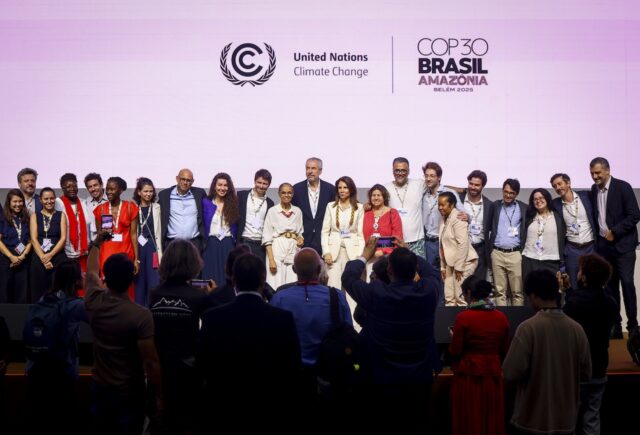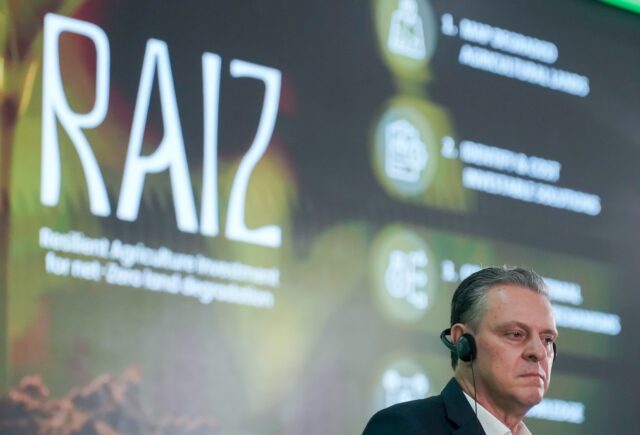The lack of affordable housing is a growing problem across Europe. The continent needs to invest in more decent and sustainable homes. An investment in an ‘energy-positive’ residential tower is showing one way of how this can be done.

Catella Residential Investment Management’s CER III fund announced its first €15mn investment in a yet-to-be-built residential tower in Saint-Étienne near Lyon in France.
It’s the first in a planned €2bn investment in one hundred residential towers across Europe aimed at providing affordable and ‘energy-positive’ homes.
The latter means the buildings will not only be self-sufficient in their energy needs but will produce slightly more energy than needed. The excess electricity generated by solar panels on the building’s roof and facades will be supplied to the French national grid, Catella’s managing director Xavier Jongen told Impact Investor.
Housing crisis
Only a few months ago, in late January, the European Parliament sounded the alarm bells on the growing lack of affordable and sustainable homes.
It called for action to solve the ‘housing crisis’ by adopting a resolution calling on EU countries to recognise adequate housing as a fundamental human right that is enforceable through legislation.
Parliament also urged EU countries to prioritise emissions reductions and energy efficiency through housing renovation, in line with the EU’s Green Deal.
Housing prices and rents have been steadily rising relative to incomes over the years in Europe. The situation has especially deteriorated for low-income owners and private renters, said the EU Parliament.
But middle-income home owners and tenant households are also facing rising housing costs as a share of their disposable income.
A growing number of households can no longer afford current market rents, while earning too much to be eligible for subsidised or social housing. This is the case in particular for single parents, large families and young people on their first jobs.
The coronavirus outbreak is exacerbating the housing problem, as many people are forced to spend the lockdown in sub-standard homes.
Affordable rents
According to Catella, the rental flats in the towers will be delivered “in the mid-market price segment”. “We define affordable by ensuring the rent is below the mid-market level of a city or district,” Jongen says.
“Through this formula, it’s possible to offer the opportunity to be able to live in comfortable apartments at affordable rents without subsidies.” The average monthly rent in the Strasbourg tower is €915.
Overall, the energy-cost savings for the tenants that result from the energy-positive building concept will make the apartments about 5-10% more affordable, he says.
He expects roughly six out of ten apartments to have a zero monthly energy bill and receive €3 a month through surplus energy resale. On average, the Elithis apartments have a yearly energy bill per household of €84.
Saving energy
The design of the tower will be based on the world’s first energy-positive residential tower in Strasbourg that was developed by Elithis, the French engineering and design company that introduced the energy-positive building concept.
“We therefore expect a similar energy performance in both locations,” says Jongen. The existing tower in Strasbourg produces about 8% excess energy.
“As an example, the energy saved each year by the Elithis Danube Tower, compared with an existing building, could supply the electricity for 2,043 household refrigerators over a year,” he adds. “The tower can save around 250 tonnes of CO2.”
For heating and domestic hot water, the new development will be connected to a district heating network fed by biomass plants which allow the project to use renewable energy without any on-site carbon emissions.
Cost no longer a barrier
Elithis will also design the tower in Saint-Étienne as well as projects in other European markets including the Netherlands, Germany and the UK during its 10-year investment programme.
It is starting with another 8-10 projects in France this year and then moving into other major markets such as Germany, the Netherlands and the UK.
The engineering and design company says it can build this tower at the same construction cost as a conventional building. “This should send a strong message to real estate investors and governments that cost is no longer a barrier to integrating the highest levels of sustainability in residential developments,” says Thierry Bievre, the company’s CEO.






